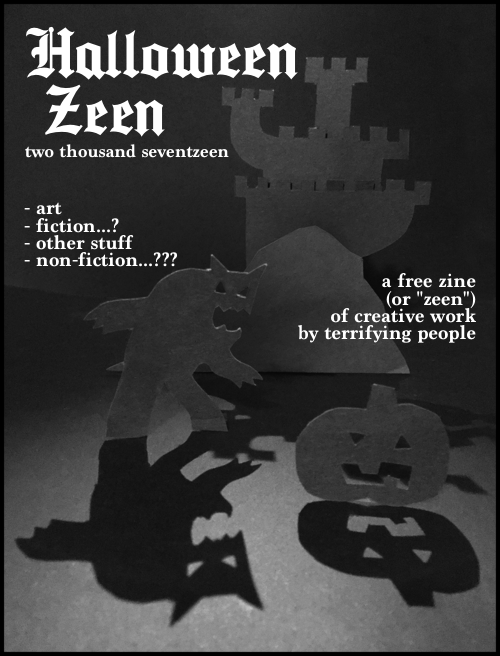The rec room was a mess. Hanna made a show of stepping gingerly over some free weights; then, balancing her tray of blondies on one arm, she produced her key ring and unlocked the heavy door to the back room.
“It’s such a shock,” she repeated, ushering me and Melanie ahead of her into the tiny chamber. Then she made a point of looking straight at me: “You gotta understand, things like this just don’t happen in Carol Lake. It’s not that kinda town.”
The room did not have the appearance of a crime scene. It was quite tidy, especially in comparison to the rec room. The safe was small and unimpressive; its door was only slightly ajar.
“Of course not,” I said. “I’m finding out that it’s a really lovely town. Really beautiful.”
“That’s right. Aren’t you sweet?” Hanna smiled her huge, disarming smile. “You oughta have another blondie, you sweetie, you.”
I started to shake my head, but Melanie put her hand on my shoulder.
“My friend is about to reject your offer. He wishes to treat you kindly, and believes it would be impolite to eat more than one of your blondies. He is unused to the social mores of Carol Lake, and is not aware that the opposite is true.”
She turned toward me, pushing my shoulder so that we were face to face. “You would be treating Hanna with more kindness if you ate another of her blondies, which I have reason to believe you find delicious. You should continue to accept her blondies until she ceases to offer them.”
I nodded emphatically, and, at a loss for words, picked up a second blondie from Hanna’s tray.
“You’re just like Mr. the Mayor,” she said, still grinning. “‘Only one blondie for me, Hanna! Watch out for those empty calories!’ All that nonsense. Don’t let him find out I said such a thing, of course. Such a lovely man.”
“Of course.”
Melanie was now poking her nose around the room, leaning and craning her neck with her hands in her pockets. Hanna and I just watched and waited—then Melanie turned around, pushing past us to investigate the rec room. With a short glance at each other we followed the detective.
Melanie’s talent for moving around without touching anything was put to the test in a room littered with fitness equipment. I won’t embarrass myself trying to put a name to each of the appliances, but I will say that the level of organization definitely made the area more of a “rec room” than a “gym.”
Now Melanie was stalking along the south wall, inspecting a series of tall basement windows which afforded the space only a modicum of natural light. The sill of the last window was occupied by a brown tabby, attempting to luxuriate in what passed for a sunbeam. Without warning, Melanie abandoned her policy of non-interference and shoved the cat out of the window.
The poor animal yelped as it fell to the floor, but, having landed on its feet, it immediately put on a show of nothing having happened. With unconvincing loftiness it strolled over to Hanna and deigned to be picked up.
“You’re sure that the door to the back room was locked?” Melanie asked from across the room.
“It locks on its own,” Hanna explained.
“Where was Cleopatra last night?”
Hanna smiled. “I never know. Out on the town, I expect.”
This sounded like an evasion to me, but Melanie seemed satisfied, and she continued: “Only you and the mayor have keys to that door?”
“That’s right. Well, there’s only the one key, but—”
Melanie cut her off. “And the combination to the safe?”
“That’s between me and Mr. the Mayor.”
Melanie nodded. “I have it figured out,” she said. She took a seat on one of several weight benches, took a deep breath, and began:
“The latch on that rightmost window is undone; the others are secured. Before the building closed, your cat left that window open—on purpose—and at some point during the night she entered this rec room in that way.
“Once inside, the cat grew a pair of human hands, which she used to pick the lock on the door to the back room. In similar fashion she broke into the safe and withdrew the bake sale proceeds. Cats being inscrutable creatures, I can only guess at her motive. Perhaps she suffers from a bad catnip habit, or compulsive purchasing behavior regarding fitness equipment. Perhaps a series of veterinarian bills piled up after a relative was put to sleep.
“At any rate, the cat left the back room with the money, allowing the door to lock as it closed. She left in the same way she entered, through the basement window—but, although she could pull the window shut behind herself, even with a pair of human hands she was unable to close the latch once she was outside.
“Then she hid the money, I do not yet know where, and turned her human hands back into paws. By pretending to fall asleep on the sill of the relevant window she hoped to disguise the key clue in the case, but I’m afraid I was too smart for her.”
Melanie finished her story with a little nod. I clicked my teeth nervously; Hanna was silent for a moment.
When she finally spoke, it was clear she was trying to hold back laughter. “Miss Cozy, that is the most ridiculous thing I have ever heard. If you can’t solve the case, I understand, but that’s no reason to make fun of it.” At length she regained her composure: “This is a very serious situation,” she concluded.
“I totally agree,” Melanie said, “but I’m afraid I’m not joking. The only humans who could have committed this crime are the mayor and yourself. It’s beyond consideration that either of you would have done such a thing, and so the only remaining explanation—”
Now Hanna cut Melanie off. “Oh! Oh, Cleopatra, you bad, bad girl!” She pushed her face into the cat’s, pursing her lips and squinting furiously. “How could you have done such a bad, bad thing?” But despite her anger she clutched the poor animal all the tighter against her chest, and I imagine a less lazy cat would have summarily jumped out of her arms.
“Well,” Hanna said, grinning again, “looks like you solved the case! Should I—Write a check, or?” She glanced from Melanie to me and back again.
“We’ll mail an invoice,” I said automatically.
“That is incorrect,” said Melanie, standing and dusting off her jacket. “My associate and I will accept payment immediately, in the form of blondies.”

